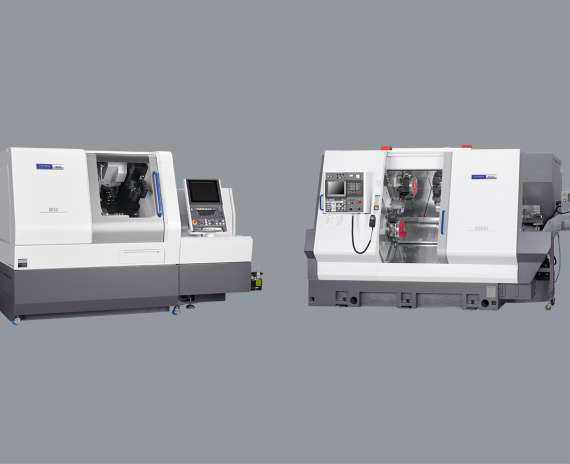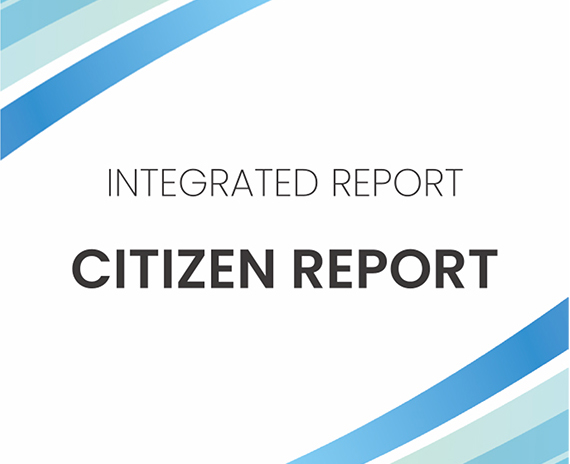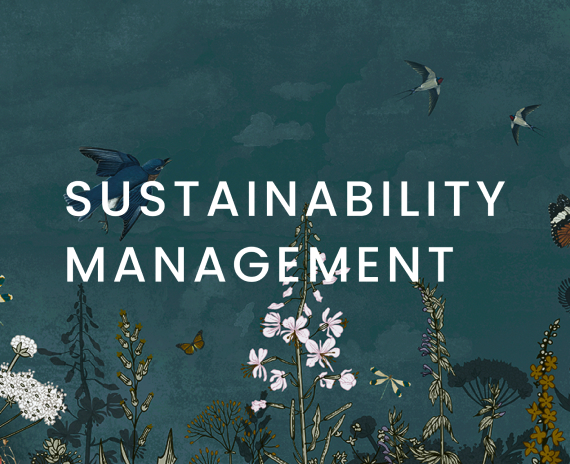-
- Basic Policy
-
Based on its corporate philosophy of "contributing to and being loved by citizens," the Citizen Group will contribute to a sustainable civil society where people can live rich in spirit and with peace of mind, by carrying out business activities, while keeping the global environment and people all over the world strongly in mind.
-
- Environmental Action Guidelines
-
- We will endeavor to preserve the global environment by reducing adverse environmental impact throughout the life cycle of our products and services and by promoting "environmentally friendly manufacturing" through the creation and provision of sustainable products that contribute to solving environmental and social issues.
- We will comply with laws, ordinances, regulations, agreements and other requirements regarding the environment.
- We will endeavor to mitigate and address climate changes by promoting greenhouse gas reduction and energy saving in our business activities.
- We will endeavor to contribute to a recycling-oriented society by promoting resource recycling through resource conservation, waste reduction, water conservation, and increased utilization of recycled resources.
- We will endeavor to prevent pollution by strengthening the management of chemical substances contained in products or handled at business sites.
- We will endeavor to preserve the global environment through such initiatives as participation in environmental conservation activities and in biodiversity and ecosystem protection activities in local communities.
- We will strengthen the environmental awareness of our employees through education and awareness building activities concerning the environment. We will also actively disclose information on environmental initiatives to fulfill our accountability to the community.
- TOP
- Sustainability
- Environment: Environmental Vision and Environmental Goals
Environmental Vision and Environmental Goals
The CITIZEN Group Environmental Vision
The CITIZEN Group's Basic Approach to the Environment
Since its establishment, The CITIZEN Group has been consistently committed to manufacturing in consideration of people and the environment, rooted in its corporate philosophy of “Loved by citizens, working for citizens.” The CITIZEN Group Environmental Policy, whose latest revision was made in April 2025, provides the basis of the Group’s environmental measures so that we promote global environmental management aimed at realizing a sustainable civil society. In April 2020, we revised CITIZEN Group Environmental Vision 2050, which commits to decarbonization and sustainable resource use toward virtually zero CO2 emissions. We also newly formulated The CITIZEN Group Resource Circulating Vision. Moreover, in April 2025, we revised CITIZEN Group Environmental Goals 2030, our five goals for achieving the SDGs, in line with changes in the external environment. We will implement sustainable management through production activities at sustainable factories that consider the environment throughout the value chain, including suppliers.
Citizen Group Environmental Policy (Revised in April 2025)
The Citizen Group will establish environmental targets in accordance with this Environmental Policy and work with suppliers, buyers, and other business partners to implement environmental due diligence and strive to continuously improve our management system. This Environmental Policy will be made publicly available and communicated to all employees and people working together.
CITIZEN Group Environmental Vision 2050 (Revised in April 2020)
The CITIZEN Group promotes global environmental activities toward the realization of a sustainable civil society.
- We contribute to the realization of a carbon-free society by both aiming to achieve virtually zero CO2 emissions from plants and offices and striving to keep CO2 emissions throughout the value chain to levels that make it possible to constrain global warning.
- Throughout the Group, we contribute to realization of a circulating society by using resources sustainably through resource conservation, 3R activities, zero waste emissions, and preservation of water resources.
- We contribute to realization of a safe, comfortable, and enriched society through preservation of biodiversity together with our local communities and by operating business sites that are free from emissions of hazardous substances and environmental incidents.
Environmental Goals
Environmental Goals
The CITIZEN Group has established a roadmap for its environmental initiatives, one of its material issues, based on CITIZEN Group Environmental Vision 2050 and CITIZEN Group Environmental Goals 2030. The Environmental Goals, as well as the environmental initiatives set forth in the roadmap toward achievement of the goals, cover a wide range of areas, including the reduction of CO2 and hazardous chemical emissions, effective use of water and other resources, prevention of environmental accidents, and preservation of biodiversity. In FY2024, we continued to promote our ongoing environmental initiatives and exceeded the goal values we had set for most metrics.
CITIZEN Group Environmental Goals 2030 (Revised in April 2025)
We will contribute to the realization of a carbon-free society, a resource-circulating society, and a safe, comfortable, and enriched society through the promotion of global environmental management aimed at achieving the SDGs.
-
- Promoting countermeasures against global warming (resource conservation, shifting to renewable energy, and adaptation to climate change)
-
Scope 1 and 2 greenhouse gas emissions 50.4% reduction by FY2030 (compared to FY2018) Scope 3 greenhouse gas emissions 30% reduction in Category 1 + Category 11 by FY2030 (compared to FY2018) Renewable energy ratio 60% (in Japan and abroad)
-
- Promoting the sustainable use of resources (resource conservation, 3Rs, and preservation of water resources)
-
Recycling rate 90% Water withdrawal 35% reduction (compared to FY2018) Improving the quality of wastewater
-
- Enhancing environmental risk management and achieving zero severe environmental accidents
-
Chemical substances subject to the Pollutant Release and Transfer Register (PRTR) Act 45% reduction (compared to FY2018)
-
- Implementing nature conservation activities and community environmental activities at all business sites
-
- Providing sustainable products and enhancing the control of chemical substances in products
Progress against the Roadmap
The table below shows our FY2024 annual environmental targets and activity results toward achievement of CITIZEN Group Environmental Goals 2030, as well as our FY2025 and FY2027 annual environmental targets and Environmental Goals 2030. We achieved our targets for all priority metrics in FY2024. We will continue our efforts to achieve our targets for FY2025 as well.
Please scroll down to see→
| Priority Issues | Targets for FY2024 | Results for FY2024 | Eva lua tion |
Targets for FY2025 | Targets for FY2027 | Environmental Goals 2030 |
|---|---|---|---|---|---|---|
| Promoting countermeasures against global warming |
|
|
〇 |
|
|
|
| Promoting the sustainable use of resources |
|
|
〇 |
|
|
|
| Strengthening the environmental management system and environmental risk management |
|
|
〇 |
|
|
|
| Conducting natural capital preservation activities and promoting community environmental activities |
|
|
〇 |
|
|
|
| Creating sustainable products and enhancing the control of chemical substances in products |
|
|
〇 |
|
|
|
- * Compared to FY2018
Establishment of a Global Environmental Management System
The CITIZEN Group is working in Japan and overseas to establish environmental management systems (EMSs) that meet the ISO 14001 international standard with a view to strengthening them and unifying them into a global EMS, as stated in the roadmap. In Japan, CITIZEN WATCH is taking the lead in establishing policies and targets for the overall EMS, and all manufacturing sites, which account for the major part of the Group’s environmental impact, have acquired unified ISO 14001 certification. Overseas, the respective sites’ efforts to obtain ISO 14001 certification are still under way, but they are working to build an EMS based on the same approach and policies as in Japan.
Identification and Assessment of Climate Change Risks
In order to contribute to solving the global issue of climate change, The CITIZEN Group aims to achieve virtually zero CO2 emissions from its factories and offices as envisioned in its Environmental Vision.
To achieve this, in FY2020 we declared our support for the recommendations of the Task Force on Climate-related Financial Disclosures (TCFD). Furthermore, in FY2021, based on two scenarios (the 1.5°C and 4°C scenarios) with different assumptions concerning the future temperature increase, we identified and assessed climate-related risks and opportunities as required by the TCFD recommendations, ending up with significant risks and opportunities identified.
To address the significant risks, we are promoting not only conventional energy-saving activities but also efforts to reduce CO2 emissions and to create environmentally friendly products. By doing so, we aim to reduce the risk of the realization of the 4°C scenario, where the average global temperature will continue to rise, and to help realize the 1.5°C scenario, in which the internationally committed target will be achieved.
In FY2023, The CITIZEN Group’s greenhouse gas emission reduction targets were validated as science based targets by the Science Based Targets initiative (SBTi). In FY2024, the Group’s Scope 1, 2, and 3 emissions underwent a third-party review by an external reviewing organization.
We will continue our efforts to reduce CO2 emissions while enhancing our climate-related disclosures in line with TCFD recommendations.
Efforts to Reduce Hazardous Chemical Substances to Establish “Sustainable Factories”
To establish sustainable factories, the entire Group is promoting the reduction of hazardous chemical substances subject to the PRTR Act. Specifically, we are shifting from heavily used PRTR substances to alternative substances, focusing on replacing 1-bromopropane, which is the most heavily used substance in the manufacturing process. Each site is also working to replace or reduce the other PRTR substances, and the status of these efforts is shared within the Group.
Starting at the product design and manufacturing stages, we strive to reduce or eliminate the use of chemical substances in actual products based on the premise that our products should not contain substances subject to product content restrictions, taking into account the trends in global environmental regulations.








